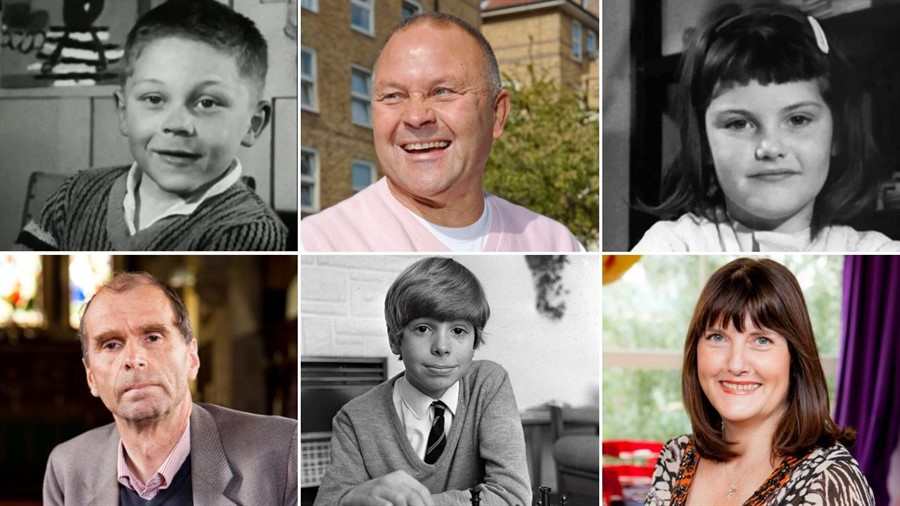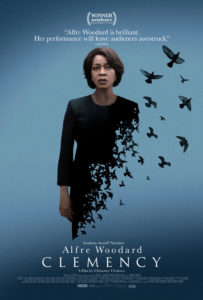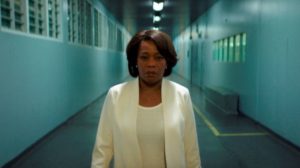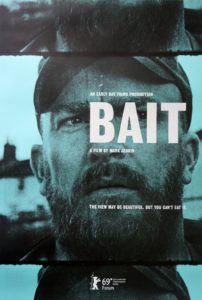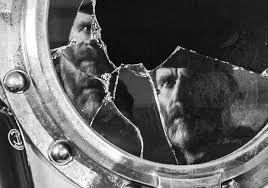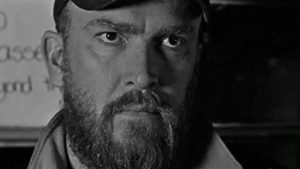The winter season at Carbon Arc started on February 7 with the Best Commercials of 2019, which was followed by the usual selection of quality international films and documentaries. Regular readers of this blog will know I’m a volunteer and programmer at the cinema.
But just as the fall season was interrupted in places by distributors who changed their mind about letting this independent venue show their films, the winter season has been interrupted by a pandemic.
Sadly, I missed the Oscar-nominated films Honeyland and Corpus Christi. It looks like screenings of A White, White Day, Beanpole, Bait, Sorry We Missed You, and The Climb, will be at least postponed, as will the animation festival that traditionally ends the winter season.
I can report that behind the scenes there are efforts to offer a solution to the problem of exhibition at the moment — but more than that I can’t say just yet.
Here are reviews of two films that did screen this season at Carbon Arc, and one I was fortunate enough to see before the postponement — fingers crossed you’ll get to see it, too.
63Up
63Up is the ninth in the Seven Up series. Back in 2012, when the eighth film, 56Up, screened, I wandered down to Quinpool Road in Halifax to rent the entire series on DVD from the late, lamented Video Difference. I watched them all over the course of a couple weeks, and was briefly obsessed by this project.
For those who don’t know, the Up series was launched in 1964 by Granada TV, with an agenda to examine the impact of class in Great Britain. The filmmakers interviewed a passel of seven-year-old school kids from different backgrounds, asking about their lives and their dreams. Michael Apted didn’t direct the first program, but he was part of the crew, and he directed the subsequent editions: every seven years the filmmaker and collaborators met up with these same interviewees to check in on their lives, at age 14, 21, 28, and so-on.
Roger Ebert described the series as “the noblest project in cinema history.”
63Up finds many of the 14 people we’ve gotten to know easing comfortably toward’s retirement, or slowing down as they approach their pension years. Many speak about the loss of parents, but a solid half of them are largely unchanged from when they were at 56, with perhaps less hair and more inches at their waistlines.
There are exceptions. There’s some sadness here as illness and death have visited the group, and I found myself holding my breath when Neil Hughes’ story was told — he’s the one who struggled the most as a young man, but has found direction later on in public service and the church. The interviewees’ reflections on aging, on life in Britain, on family, class, and even on Brexit are all fascinating, and having seen the other entries in the program it was a thrill to stop in and revisit with these people one more time.
Despite the differences in their background and upbringing, all of the participants whatever their circumstances have found some measure of success, via family, profession, or community. After the screening, someone remarked the Up series serves as sort of an ode to benefits of getting older.
By the way, anyone who hasn’t seen the previous editions shouldn’t feel concerned they’ll be missing out — the filmmakers are good at using clips from earlier films to illustrate these people’s journey through life.
With Apted now pushing 80, it’s hard to say whether this 56-year-long project will continue, though he’s suggested it could go on without him, provided the subjects are game. If this does end up being the last one, it did cross my mind it would’ve been a nice gesture for Apted to have turned the camera on himself, and offer some details as to how the project has changed him through the years. What is his relationship to the subjects, and how does he view the films with the benefit of hindsight?
Perhaps in 70Up, if there is one.
Clemency
Chinonye Chukwu’s feature comes already garlanded with awards from Sundance, and a lot of talk that the Academy really missed something by ignoring Alfre Woodard for an Oscar.
She’s the number one reason to see this straight-ahead criminal justice issue movie, which while being better than last year’s conventional Just Mercy, shares with it a mission — to shine a light on the injustice of the US penal system, which incarcerates an inordinate number of African Americans. This one’s story is fictionalized, but based on the actual case of a death row inmate in Georgia.
Woodard plays Bernadine Williams, warden of a death row prison. Next up for lethal injection is Anthony Woods (Aldis Hodge), who’s been behind bars for 15 years for a crime he likely didn’t commit, if the recanted witnesses and inconclusive evidence is anything to go by. Woods’ lawyer (Richard Schiff) is still fighting for him, but he’s ready to call it a day after 30 years of banging his head against the wall. Warden Williams is barely holding it together, and her husband (Wendell Pierce) is ready to leave her because she’s so checked out.
The strongest element here is the examination of what it takes to work in prisons, and the impact on the front line staff, especially from an African-American perspective. What makes it rise above the ordinary are the performances — Schiff brings his patented world-weariness, familiar from his days on The West Wing, while Hodge soars in a couple of scenes of raw emotion, especially in a mid-movie conversation with the mother of his child (Danielle Brooks).
But Woodard is the show-stopper. How she manifests emotion on her face is an acting masterclass.
Bait
This is a really interesting film. Some have called it experimental, and I suppose in this era of digital ubiquity, that’s fair. It feels to me like a case where the film’s form is as important as its content.
Filmmaker Mark Jenkin shot Bait on hand-cranked black-and-white 16mm, hand-processed it, and dubbed the whole picture in postproduction. The end result is a film that both looks and feels like a kitchen sink, neorealist drama circa 1964. I’d say the gritty tale of a Cornish fisherman whose livelihood is threatened by changing times is somewhat offset by the artifice of the visual approach and sound recording, and yet also enhanced by it.
The formal approach is to its credit — constantly challenging you to consider the frame through which you’re watching. The narrative and performances are engaging enough that you might get lost in the story, until an odd edit, visual anachronism, or sound cue jerks you out of it. That’s not a critique, more a fair warning that the journey through this film is far from the average.
Martin Ward (Edward Rowe) is the fisherman in question, whose brother uses the family boat to take out tourists onto the water. Martin wants to maintain the family’s traditional way of life, but it’s not just tourists in town changing things — wealthier city folk have bought up old property, looking to take advantage of a different speed and quality of living — all of which upsets Martin, impotent in the face of change and prone to making scenes in the local pub.
The parallels with life in Nova Scotia are writ large, which makes this screening’s postponement all the more disappointing. I was looking forward to getting a Carbon Arc audience reaction to the unusual way this film tells its story, and the story itself.





